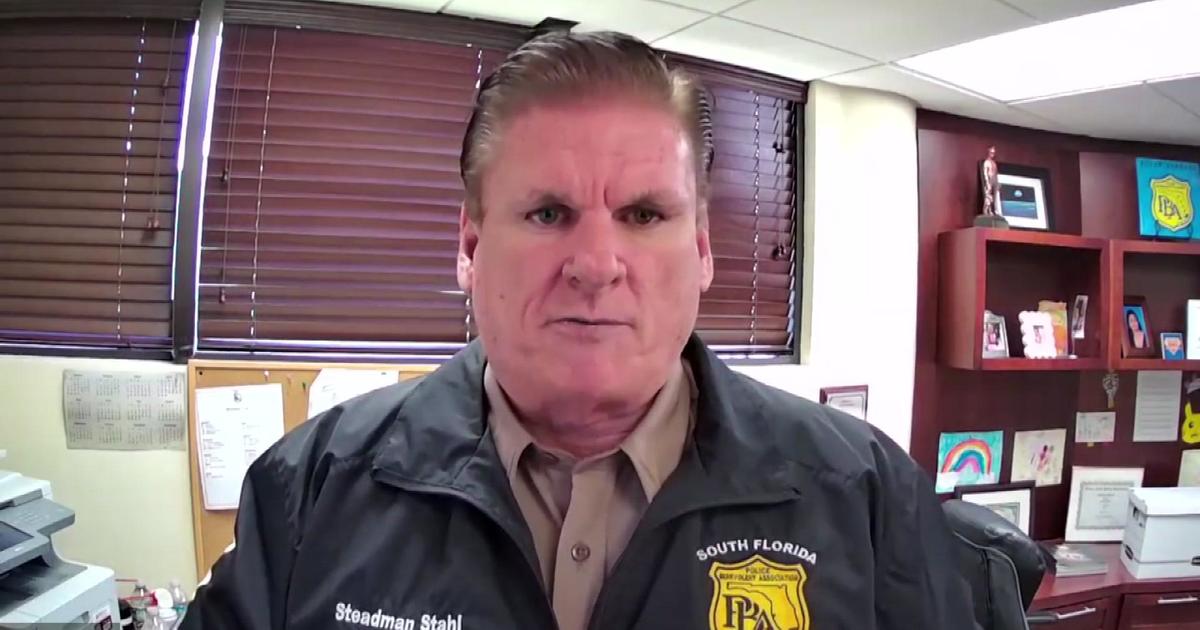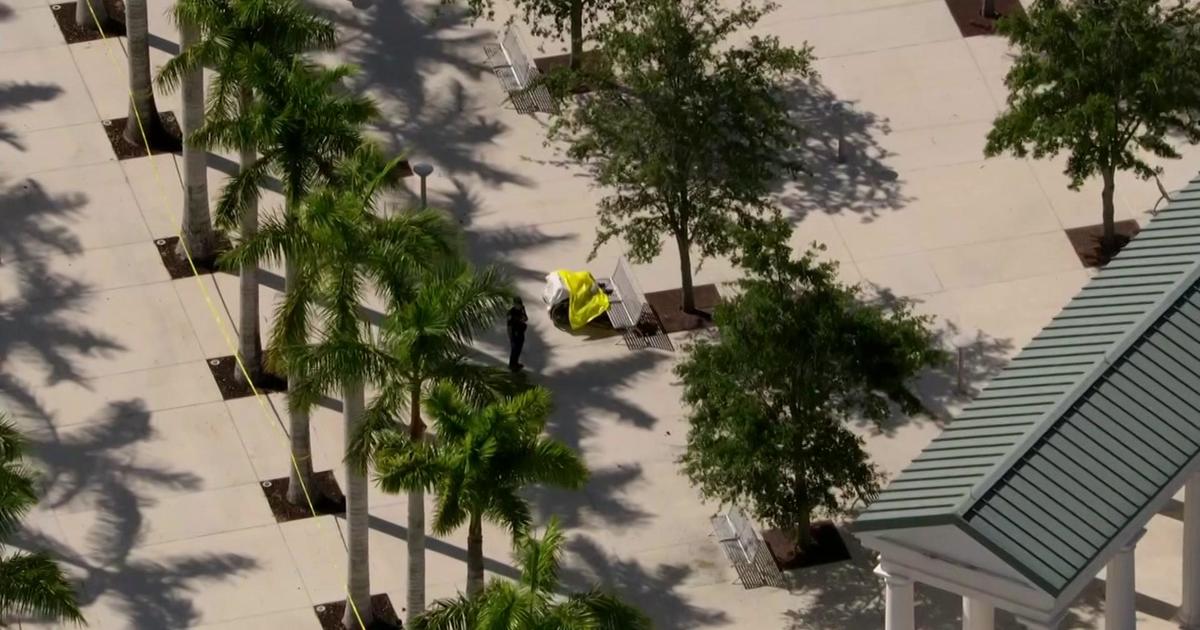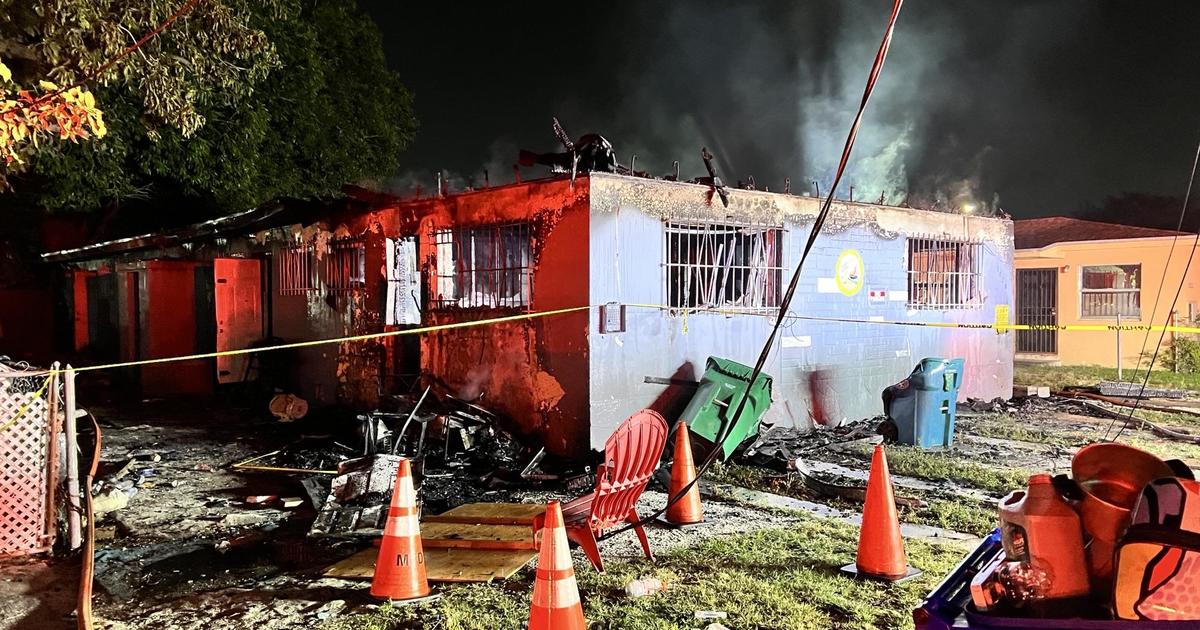Haiti President Jovenel Moïse Assassinated At Home
MIAMI (CBSMiami/CNN) - Haitian President Jovenel Moïse was assassinated after a group of unidentified people attacked his private residence, according to the country's acting Prime Minister Claude Joseph.
He condemned what he called a "hateful, inhumane and barbaric act," adding that Haiti's National Police and other authorities had the situation in the Caribbean country under control.
The killing late Tuesday comes amid deepening political and economic stability and a spike in gang violence.
In a further statement, Joseph said the President was killed in a "highly coordinated attack by a highly trained and heavily armed group." He did not specify how Moise died.
Haiti's first lady, Martine Moise, was shot in the attack and is being evacuated to a hospital in Miami for treatment, said Haiti's ambassador to the US.
Her condition is stable but critical, Ambassador Bocchit Edmond said in a press briefing.
The country has been reeling from violence for weeks. Addressing the nation in a televised statement, Joseph declared a "state of siege" in Haiti and pleaded with citizens to remain calm.
"Me and all the ministers have been working since the news broke and we want to assure you we will bring the killers of the president to justice," he added. "Please stay calm and let the authorities do their work. We don't want the country to plunge into chaos. This is a very sad day for our nation and for our people."
The state of siege is the middle of three levels of emergency under Haitian law, alongside the lower "state of emergency" and the highest level referred to as the "state of war."
Under the state of siege regime, national borders are closed and martial law temporarily is imposed, with Haiti's military and national police empowered to enforce the law.
Nou Pap Dòmi, one of Haiti's main opposition groups, has condemned the assassination. The group, which has previously been extremely critical of Moise and corruption in the country, said in a statement it was shocked by the news and called for unity and de-escalation.
"We cannot continue to count corpses on a daily basis ... all of the victims of massacres and assassinations must find justice and those responsible for these acts must be brought to justice," the group said.
It isn't immediately clear who will replace Moise. Judge Jean Wilner Morin, President of the National Association of Haitian Judges, told CNN that the line of presidential succession in the country is now murky.
Haiti's President of the Supreme Court would normally be next in line, but he recently died of Covid-19. For the acting Prime Minister Joseph to formally replace the President, he would have to be approved by Haiti's parliament, said Morin. But without recent elections, the parliament is effectively defunct.
Moise was 53 years old. The former banana exporter was a controversial figure and spent most of the past year waging a political war with the opposition over the terms of his presidency.
Many in the country were disputing his right to continue serving in the presidency this year.
While the United States, United Nations and Organization of American States supported his claim to a fifth year in office, critics say he should have stepped down in February 7, 2021, citing a constitutional provision that starts the clock once a president is elected, rather than when he takes office.
Moise claimed his five-year term should end in 2022 because he wasn't sworn in until February 2017. His inauguration was delayed over allegations of voter fraud during the 2015 election, which led to a presidential runoff that was postponed twice over what authorities called threats and "security concerns."
Throughout his presidency, Moise had repeatedly failed to hold elections at local and national levels, leaving much of the country's governing infrastructure empty.
A constitutional referendum originally scheduled to be held last month was postponed and is now set to be held in September, alongside the presidential and legislative elections, authorities said, blaming the Covid-19 pandemic for the delay.
The country's electoral council said in a statement that the country would implement health measures to curb the spread of the coronavirus so that Haitians could cast their votes safely.
Municipal and local elections have been scheduled for January 16, 2022, the official electoral calendar also showed.
Worsening Situation
Moise's death takes place against a background of extreme violence in Haitian capital Port-au-Prince that has claimed the lives of many citizens and escalated notably in June.
Rival groups have battled with one another or the police for control of the streets, displacing tens of thousands of people and worsening the country's humanitarian crisis. Infamous ex-police officer Jimmy Cherizier last week vowed before local media to carry out a "revolution" in the city.
Moise's private residence is in Petion-Ville, in Haiti's capital Port-au-Prince.
Meanwhile, the coronavirus pandemic has been worsening in Haiti in recent weeks. The country is one of only a handful across the world that have not yet started vaccinating against the virus.
Last month, the Pan American Health Organization (PAHO) warned that the response in the country must be scaled up dramatically to cope with sharply escalating cases, hospitalizations and deaths.
PAHO Director Dr. Carissa Etienne said it would step up efforts to help Haiti with the vaccination program. "I am hopeful that the arrival of vaccines in the country can start to turn the tide of the pandemic and bring some relief to the Haitian people during these very difficult times," Etienne told reporters during the organization's weekly briefing on Wednesday.
Haiti has reported more than 19,000 Covid-19 cases and 462 deaths, according to the Johns Hopkins University tally.
At the same time, the impoverished Caribbean nation is facing a dire economic situation. Its economy had been contracting even before the pandemic and shrunk further 3.8% in 2020, with about 60% of the population now living in poverty, according to the World Bank.
UNICEF, the United Nations' children's agency, said in May that severe acute childhood malnutrition is expected to more than double in Haiti this year as it deals with rising violence, Covid-19 and a lack of access to essential services.
Global figures condemn assassination
World leaders have denounced the attack, while expressing condolences and solidarity with the Haitian people.
The United Nations Secretary-General António Guterres condemned the assassination "in the strongest terms," saying the "perpetrators of this crime must be brought to justice."
In a statement released by the White House, US President Joe Biden said: "We are shocked and saddened to hear of the horrific assassination ... and the attack on First Lady Martine Moïse of Haiti. We condemn this heinous act, and I am sending my sincere wishes for First Lady Moïse's recovery."
Speaking to reporters later, Biden said: "We need a lot more information -- but it's -- it's just -- it's been very worrisome about the state of Haiti," he told reporters.
Chilean President Sebastian Piñera called "for unity and peace to strengthen democracy and find a way out of the serious crisis that Haiti is going through," while Colombia's President Ivan Duque condemned the "cowardly and barbaric" killing.
UK Prime Minister Boris Johnson has called for calm, saying he was "shocked and saddened" at Moise's death. And Spanish Prime Minister Pedro Sanchez tweeted a statement saying: "Spain strongly condemns the assassination of the President of Haiti ... We call for the unity of the political forces to find a way out of the serious crisis that the country experiences."
(©2021 CBS Broadcasting Inc. All Rights Reserved. Cable News Network, Inc., a Time Warner Company, contributed to this report.)



